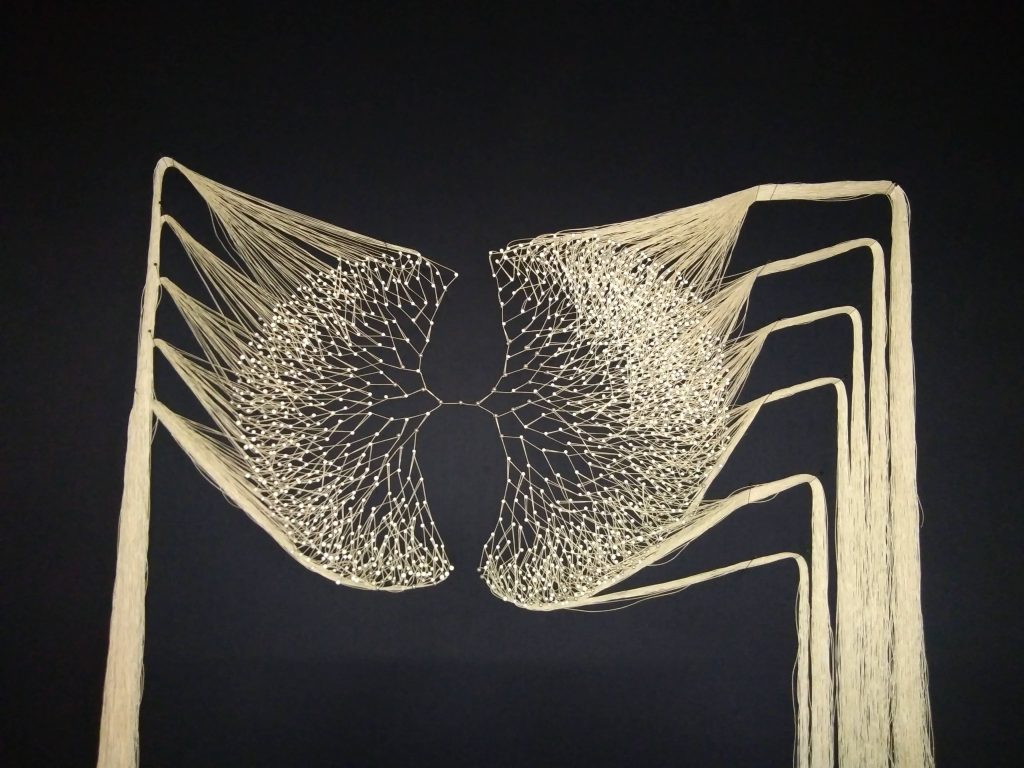
Lubumbashi Biennale VI, Future Genealogies, Tales From The Equatorial Line. Democratic Republic of Congo. Oct 24-Nov 24 2019. A Tale of Eleven Births. Wendy Morris. Curator Sandrine Collard.
A Tale of Eleven Births is part of the project Nothing of Importance Occurred, conducted since 2018 by Wendy Morris, and centered on Maaij Claesje, a 17th century Angolan midwife and enslaved ancestor. Of the eleven generations that Wendy found on an old family tree, this woman was the only forebear not named. Research revealed her to be Maaij Claesje of Angola. While conducting research, Morris discovered three archives relating to this ancestor. The first recorded the events of her transport aboard a Portuguese slaver that left Luanda for Brazil, the hijacking of this ship, and the people imprisoned aboard it, by the Dutch East India Company VOC ship Amersfoort, and her arrival with other survivors at the Cape in 1658. The second document, dating from 1688, revealed that she was taken aboard the Wapen Van Alkmaar to assist the wife of a Dutch East India Company employee give birth enroute to Batavia. In return for this assistance Maaij Claesje was able to negotiate her freedom and returned to the Cape as a ‘Free Black’. The third entry on Maaij Claesje is in the diary of an official of the Dutch East India Company in Cape Town who, on December 31, 1731, writes that ‘nothing of importance occurred’, besides the fact that the ‘old slave woman’, Maaij Claesje, has died. In A Tale of Eleven Births, Wendy Morris recreates a genealogy of pins and threads in which each pinhead represents an ancestor of both her paternal and maternal lineages. The thread that weaves the pins together and materializes the kinship of the individuals they embody, forms a lace-like entanglement that becomes tighter as the artist goes back in time. The goal was to ‘rethread’ this lineage as a response to the state of natal alienation that tears an enslaved person from both her ancestral forebears and her descendants. The installation is accompanied by a small embroidered sampler upon which the story is stitched. Tucked into pockets of this sampler are small bags containing dried plants alluding to a pharmacopoeia of a 17th century midwife.

Wendy Morris is a South African artist living in Belgium. Her work engages with Libraries (of Books Withdrawn), Dictionaries (of Exchangeable Words for Travelling Women, and Migratory Birds), Letters (to an Old Tree) and Diaries (of a young Roman woman unearthed near Tongeren). She is compiling a Herball for a 17th century Enslaved Angolan Midwife at the Cape, and a Travelogue of the Wandering Womb. Morris is professor in contemporary arts at the University of Leuven, teacher and researcher at LUCA School of Arts, Brussels, with the deep histories fragile memories research group, and protagonist at Kunsthal Netwerk-Aalst, Centre for Contemporary Art.

Lubumbashi Biennale VI, Future Genealogies, Tales From The Equatorial Line. Democratic Republic of Congo. Oct 24-Nov 24 2019. A Tale of Eleven Births. Wendy Morris. Curator Sandrine Collard.
Wendy Morris’ participation in the biennale is supported by Flanders State of the Art.
